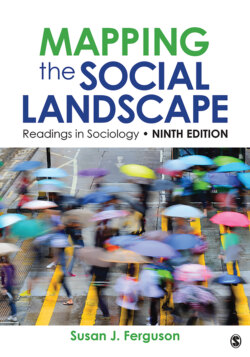Читать книгу Mapping the Social Landscape - Группа авторов - Страница 58
На сайте Литреса книга снята с продажи.
Representative Personal Statements
ОглавлениеMuch of the flavor and impact of this prison experience has been unavoidably lost in the relatively formal, objective analyses outlined in [other papers]. The following quotations taken from interviews, conversations, and questionnaires provide a more personal view of what it was like to be a prisoner or guard in the “Stanford County Prison” experiment.
Guards’ Comments
They [the prisoners] seemed to lose touch with the reality of the experiment—
they took me so seriously. I didn’t interfere with any of the guards’ actions. Usually if what they were doing bothered me, I would walk out and take another duty…. looking back, I am impressed by how little I felt for them.
They [the prisoners] didn’t see it as an experiment. It was real and they were fighting to keep their identity. But we were always there to show them just who was boss.
I was tired of seeing the prisoners in their rags and smelling the strong odors of their bodies that filled the cells. I watched them tear at each other, on orders given by us.
Acting authoritatively can be fun. Power can be a great pleasure. During the inspection, I went to cell 2 to mess up a bed which the prisoner had made and he grabbed me, screaming that he had just made it, and he wasn’t going to let me mess it up. He grabbed my throat, and although he was laughing I was pretty scared. I lashed out with my stick and hit him in the chin (although not very hard) and when I freed myself I became angry.
Prisoners’ Comments
The way we were made to degrade ourselves really brought us down, and that’s why we all sat docile toward the end of the experiment. I realize now (after it’s over) that no matter how together I thought I was inside my head, my prison behavior was often less under my control than I realized. No matter how open, friendly, and helpful I was with other prisoners I was still operating as an isolated, self-centered person, being rational rather than compassionate.
I began to feel I was losing my identity, that the person I call _______, the person who volunteered to get me into this prison (because it was a prison to me, it still is a prison to me, I don’t regard it as an experiment or a simulation …) was distant from me, was remote until finally I wasn’t that person, I was 416. I was really my number and 416 was really going to have to decide what to do.
I learned that people can easily forget that others are human.
